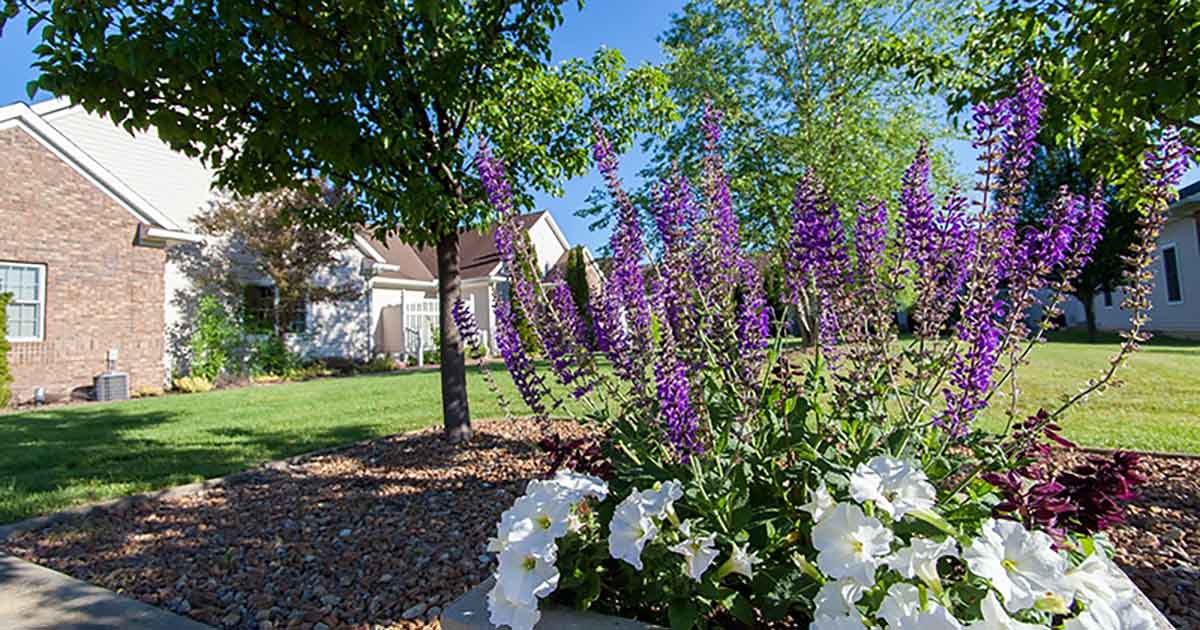The opportunity to grow older is a gift. It means more time to spend with the people you love, doing the activities you enjoy. There are a lot of misconceptions about getting older, especially when it comes to quality of life. Although ageist stereotypes may lead you to believe that old age is sad or depressing, research suggests that older adults tend to get happier over time.
Like with any other stage in life, happiness in old age doesn’t come without effort and support. When seniors are surrounded by a healthy community of peers and caregivers, they are able to thrive. Everyone deserves the resources to age with dignity and joy, and many modern senior living centers can provide that.
If you’re searching for the ideal senior living center for yourself or a parent, it’s important to research your options. Keep reading to learn about the best senior living Jackson, MI, can provide, including types of senior living, their costs and how to find the best fit.
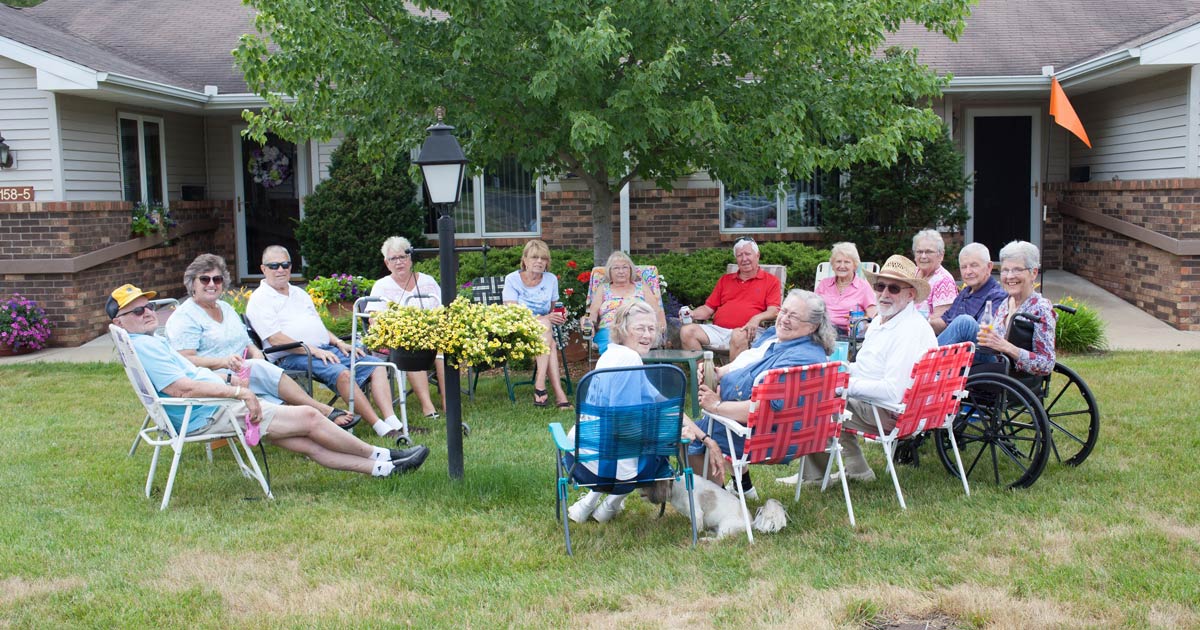
Types of Senior Living in the Jackson Area
When it comes to types of senior living, there are a lot more options than there used to be. In previous generations, many seniors were sent to general care homes, regardless of abilities or preferences. Today, seniors can choose from a wide range of environments that are designed to benefit their physical and emotional well-being.
Residential Care Home
Many people prefer to age in place, meaning they continue to live in their own home or community. However, for seniors with certain health considerations, this hasn’t always been an option. For seniors who value autonomy yet need special attention, residential care homes are an attractive choice.
 Most residential care homes are typically converted single family homes in residential communities. Although residents have their own private living spaces, trained staff make visits to assist with day-to-day tasks. Residential care homes generally feature the following benefits:
Most residential care homes are typically converted single family homes in residential communities. Although residents have their own private living spaces, trained staff make visits to assist with day-to-day tasks. Residential care homes generally feature the following benefits:
- Personal attention. Although similar to assisted living residences, residential care homes are typically smaller communities, which allows for plenty of one-on-one attention.
- Independence. Whereas some types of senior living include extensive activity programming, residential care homes encourage residents to pursue their own interests and activities.
- Family access. As these care homes have limited staff and residents, it’s generally easier for a resident’s family members to interact with owners and managers.
- Security. Many residential care homes provide emergency alert systems or safety devices to their residents, helping them live more independently for longer.
Not every senior wants to live in their own home, especially if they require frequent medical attention or suffer from isolation and loneliness. Luckily, residential care homes are just one option. When it comes to senior living, Jackson, MI, has plenty of alternatives.
Assisted Living
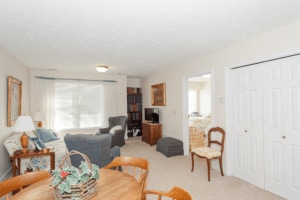 Although similar to residential care homes, assisted living residences differ in a few key ways. Rather than individual homes, residents in assisted living residences have individual apartments or suites. Their units may have full kitchens or mini-kitchens, and staff generally provide three meals a day. For this reason, people sometimes compare assisted living residences to resorts or hotels.
Although similar to residential care homes, assisted living residences differ in a few key ways. Rather than individual homes, residents in assisted living residences have individual apartments or suites. Their units may have full kitchens or mini-kitchens, and staff generally provide three meals a day. For this reason, people sometimes compare assisted living residences to resorts or hotels.
Staff at assisted living residences help with laundry and housekeeping, as well as bathing and grooming in some cases. Amenities may include restaurant-style dining, coordinated social activities, planned outings and transportation. Assisted living centers are ideal for residents who value their social lives but may not be able to perform daily tasks alone.
Skilled Nursing Residence

After an illness, injury or surgery, some seniors struggle to fully recover. At skilled nursing residences, trained registered nurses and doctors provide the transitional care needed for recovering patients to get back on their feet. In addition to nursing, these residences may provide rehabilitation services, including physical, occupational and speech therapies.
Skilled nursing residences resemble hospitals more than apartments, as the focus is on recovery rather than long-term living. Unlike traditional nursing homes, skilled nursing residences have fewer coordinated social activities, as the focus is not integration. However, these residences do provide some social opportunities for their residents.
Independent Living
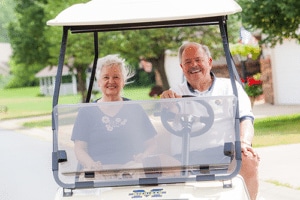 Rather than medical support, some seniors just need a little extra community support. For older people who are capable of living independently but prefer to do so around other seniors, independent living communities are a fantastic choice.
Rather than medical support, some seniors just need a little extra community support. For older people who are capable of living independently but prefer to do so around other seniors, independent living communities are a fantastic choice.
Independent living communities offer a variety of housing choices for seniors to rent while avoiding the maintenance hassles of homeownership. These communities are meant for independent older people with active lifestyles. Amenities may include recreation spaces, pools, fitness centers, art studios and dining venues.
How to Choose the Right Senior Living Community
With so many types of senior living to choose from, it can be difficult to know what’s right for you or your parent. Sometimes, seniors and their children disagree about which living features to prioritize. In these cases, it’s important to evaluate the situation from both perspectives.
Considerations for Seniors
 Everyone values autonomy, including seniors. For many older people, the idea of being micromanaged or scheduled is uncomfortable (and in many cases, unnecessary). If you’re a senior who’s unsure of which type of housing to choose, consider these factors:
Everyone values autonomy, including seniors. For many older people, the idea of being micromanaged or scheduled is uncomfortable (and in many cases, unnecessary). If you’re a senior who’s unsure of which type of housing to choose, consider these factors:
- Independence. If you value independence and prefer to come and go as you please, you may prefer an independent living community or residential care home.
- Assistance with daily care. Are you able to perform daily care tasks such as bathing, grooming and taking medication? Many assisted living residences and residential care homes can help with daily care tasks while allowing you to maintain autonomy.
- Health concerns. If you have health conditions that require 24/7 monitoring, you’ll want to choose a residence that provides trained medical staff.
- Social activity. For people who struggle to socialize on their own, residential care homes and independent living can be lonely. If you need a little assistance meeting people and socializing, you may want to consider assisted living.
Considerations for Adult Children
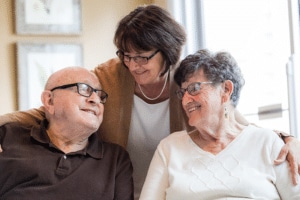 For children of aging parents, choosing a senior living residence comes with a lot of responsibility. The most important factors to consider are your parent’s happiness and wellbeing. However, you should also consider the following:
For children of aging parents, choosing a senior living residence comes with a lot of responsibility. The most important factors to consider are your parent’s happiness and wellbeing. However, you should also consider the following:
- Family Access. In an independent living or residential care home, visitors and residents can come and go as they please. However, most assisted living residences require visitors and family to check in during scheduled visiting hours.
- Medical care. Some seniors lose the ability to accurately gauge their medical care needs. If you know your parent needs help with medication, daily care, etc., you might encourage them to try an assisted living residence.
- Emotional wellbeing. If your parent struggles with isolation and depression, you may want to encourage them to choose a residence with built-in social activities and outings.
- Cost. In an ideal world, cost wouldn’t be a consideration. However, if you’re working within the limitations of your parent’s savings, their health insurance coverage or your own savings, you need to consider affordability.
The Costs of Jackson, MI, Senior Living Communities
 There are many variables that contribute to senior living arrangement costs, including the type of housing and medical care provided. Care residences that administeraround-the-clock medical care cost more than residences that do not, and independent living tends to be more affordable than more involved residences. Unfortunately, Medicare doesn’t cover assisted living or long-term residential care; it does, in some cases, cover skilled nursing care.
There are many variables that contribute to senior living arrangement costs, including the type of housing and medical care provided. Care residences that administeraround-the-clock medical care cost more than residences that do not, and independent living tends to be more affordable than more involved residences. Unfortunately, Medicare doesn’t cover assisted living or long-term residential care; it does, in some cases, cover skilled nursing care.
Many older adults and their children worry about whether they can afford the necessary senior care. If you’re unable to pay for senior care with personal funds or private financing, you may qualify for financial assistance through one of the following :
- Centers for Medicare & Medicaid Services (CMS)
- Program of All-Inclusive Care for the Elderly (PACE)
- State Health Insurance Assistance Program (SHIP)
- Department of Veterans Affairs
- Social Security Administration Programs
- National Council on Aging (NCOA)
- Benefits.gov
Many assistance programs can be difficult to navigate alone. If you’re struggling to find financial assistance for a particular senior living residence, ask to speak to one of their representatives about your options. They may have valuable insight about how to make their residence affordable to you.
How to Know When it’s Time to Think About Senior Care
 Change happens slowly, and many seniors fail to recognize when they need help. Even for adult children of seniors, it can be difficult to recognize when parents are struggling to care for themselves. However, a few distinct signs signal that it’s time to think about senior care.
Change happens slowly, and many seniors fail to recognize when they need help. Even for adult children of seniors, it can be difficult to recognize when parents are struggling to care for themselves. However, a few distinct signs signal that it’s time to think about senior care.
Lack of Grooming, Personal Care
Oftentimes, the first sign of a struggling senior is a lack of grooming and personal care. There are many reasons that some older people stop caring for themselves, including mobility issues, forgetfulness, depression or fear of slipping in the shower or bath.
Unfortunately, neglecting hygiene and grooming can exacerbate depression, and forgetting essential medications can be dangerous. Assisted care residences can help older adults with bathing, toileting, dressing, grooming, medication, eating, moving and more.
Ignoring Home and Property Care
Part of caring for yourself is maintaining your living space. Environments that are cluttered, dirty and unkept present hazards to seniors. Older adults can trip in messy living rooms, get sick from eating spoiled food and suffer from lack of nutrition if they’re unable to prepare meals. When a home is in disarray, it’s time to start thinking about senior care.
Increased Need for Medical Care
Do you or your parent require frequent trips to the doctor? Seniors who need to see a variety of specialists in order to maintain good health face several potential obstacles. Not only must seniors drive themselves or find a ride each time they visit the doctor, but they must also remember to schedule and attend appointments.
After an injury, illness or surgery, some seniors need comprehensive care. For those adults, skilled nursing residences supply 24-hour medical care until they are well again. Seniors with progressive diseases may benefit from assisted care residences that offer around-the-clock access to medical professionals.
Isolation, Loneliness and Depression
 Some seniors are perfectly healthy but suffer from depression and loneliness. If you or your parent are capable of caring for basic needs but crave social stimulation, independent living or residential care residences can be an essential lifeline.
Some seniors are perfectly healthy but suffer from depression and loneliness. If you or your parent are capable of caring for basic needs but crave social stimulation, independent living or residential care residences can be an essential lifeline.
In residential care homes and independent living environments, independent seniors can surround themselves with people their own age. These are perfect environments to make new friends, meet a special someone or just relax around peers. Seniors who prefer scheduled social activities and help with daily activities may also consider assisted living residences.
Frequent Falls and Accidents
Safety is a huge concern for aging adults. If you or a parent are falling more frequently, noticing more cuts and scrapes or have a general feeling of being unsafe, it’s time to consider other arrangements. At senior living residences, staff ensure the safety of their residents with routine check-ins and appointments.
Jackson Senior Living FAQs
If you’re thinking about entering a senior living residence or sending your parent to one, you probably have a lot of questions. With so many factors to consider, it’s a good idea to take your time and do the necessary research. Our FAQ section provides answers to some of the most frequently asked questions.
What are the Highest-Rated Senior Living Communities Near Jackson, MI?
If you’re searching for the best senior living, Jackson, MI, has to offer, you’re in luck. There are many highly-rated senior living residences, including the following:
- John Ganton’s Countryside: A Planned Adult Community
- Summit Park Assisted Living Center
- Jackson Friendly Home
- John George Home
- Senior Moments Assisted Living
- Presbyterian Villages of MI
How Many Senior Living Residences are There Near Jackson, MI?
Jackson, MI, is a wonderful place to grow older. There are 20 assisted living residences in the Jackson area, with 16 inside the city and four just outside of town.
What Is a Planned Adult Community?
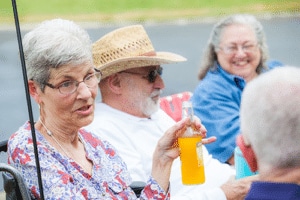 A planned adult community is a retirement community that provides housing, amenities and opportunities for people in all stages of older adult life. This type of community generally has a large campus with housing that ranges from fully independent living to nursing care. In planned adult communities, seniors don’t have to worry about being uprooted when their health situations change; they can access all the care they need from the same campus.
A planned adult community is a retirement community that provides housing, amenities and opportunities for people in all stages of older adult life. This type of community generally has a large campus with housing that ranges from fully independent living to nursing care. In planned adult communities, seniors don’t have to worry about being uprooted when their health situations change; they can access all the care they need from the same campus.
How Do I Choose the Best Living Community for My Parent?
The most important thing you can do when helping an aging parent decide on a senior living residence is to respect what they want. For most seniors, access to medical care isn’t their only concern; they also want to live around people their own age, engage in social activities and have access to outdoor space.
What Are the Benefits of Aging in Place?
Aging in place means being able to stay in a familiar and comfortable environment despite changing medical needs. Communities built around aging in place contain all the resources that seniors need throughout the various stages of older adult life. When seniors are allowed to age in place, they experience safety, comfort and happiness.
Senior Living in Jackson, Michigan: You Deserve the Best
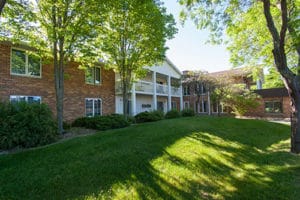 Here’s a secret about old age: It can be one of the best, most exciting times in a person’s life. However, in order to fully enjoy their golden years, seniors need support. If you’re looking for the best senior living Jackson, MI, has to offer, look no further than John Ganton’s Countryside: A Planned Adult Community.
Here’s a secret about old age: It can be one of the best, most exciting times in a person’s life. However, in order to fully enjoy their golden years, seniors need support. If you’re looking for the best senior living Jackson, MI, has to offer, look no further than John Ganton’s Countryside: A Planned Adult Community.
At John Ganton’s Countryside, seniors live in dignity, on their own terms. Our 100-acre campus includes residences for every stage of older life, including independent living, assisted living, skilled nursing care, assisted memory care, rehabilitation residences and more. No matter where an older person is in their journey, we have a community built around supporting their needs.
Interested in visiting John Ganton’s Countryside? We’d love to have you! Schedule a tour through our website or give us a call at (517) 787-4150 today.

